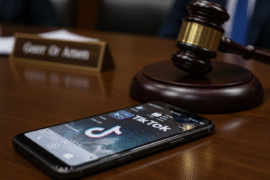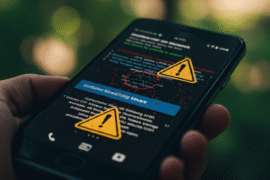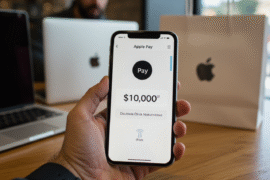This article may contain references to products or services from one or more of our advertisers or partners. We may receive compensation when you click on links to those products or services. Nonetheless, our opinions are our own.
In an age where digital footprints can feel like heavy shackles, especially for teenagers, how to turn off Life360 without parents knowing has almost become a whispered digital anthem. This article isn’t a tutorial on defiance, rather, it’s a guide to understanding both the technology of Life360 and the complex dance between trust and independence. Phonsee app is protected from this!
- Why Teens Seek Privacy
- Understanding Life360 Features
- Does Life360 Notify When Location is Turned Off?
- How to Turn Off Life 360 Without Parents Knowing
- Disable Life360 Without Your Parents Knowing
- Using Phone Settings to Your Advantage
- Battery Usage to Camouflage Activity
- Exploring App-specific Disabling Options
- Dealing with Potential Consequences
- Legal and Ethical Considerations
- Conclusion
- FAQs
- Recommended Reads
Why Teens Seek Privacy
The teenage years are a tumultuous time, filled with a fierce desire for independence. Balancing this newfound autonomy while living under a parental roof can be challenging, especially with apps like Life360 – app for parents, that provides real-time location tracking.
Understanding Life360 Features
Life360 is an app designed to keep families connected, offering features like location sharing, emergency assistance, and notifications for arrivals and departures from set “Places.” But at what point does safety turn into surveillance?
Does Life360 Notify When Location is Turned Off?
A question that often surfaces is, does Life360 notify when location is turned off? Yes, it does. When location services are disabled, the app notifies members of the circle, which can trigger concerns or confrontations.
How to Turn Off Life 360 Without Parents Knowing
So, how to turn off Life 360 without parents knowing? It’s a delicate process. Start by disabling the app’s background refresh and mobile data. This halts real-time location updates, making your whereabouts on the map static until the features are re-enabled.
Disable Life360 Without Your Parents Knowing
To further disable Life360 without your parents knowing, explore the app’s settings. One can restrict its location access to “While Using the App,” preventing Life360 from accessing your location when running in the background.
Using Phone Settings to Your Advantage
Leverage your phone settings. Activating “Airplane Mode,” or turning off “Location Services” might do the trick, but remember, these actions can send notifications to your parents’ phones.
Battery Usage to Camouflage Activity
Draining your phone’s battery is another method. Life360 can’t update your location if your phone is off. Claiming battery issues can sometimes be a plausible excuse if you decide to disable Life360 without your parents knowing.
Exploring App-specific Disabling Options
Dive into developer settings available on some devices. Options like “Mock Locations” might help, but they require significant technical know-how and can potentially breach the app’s terms of service.
Dealing with Potential Consequences
Remember, circumventing tracking might lead to a loss of trust. Be prepared for conversations with your parents if they discover your tactics.
Having the Privacy Talk with Parents
Instead of going rogue, consider having an open dialogue with your parents about why you feel the need for more privacy. This approach respects their concern while asserting your desire for independence.
Legal and Ethical Considerations
Once you decide to disable Life360 without your parents knowing, it comes with ethical considerations. It’s crucial to respect your parents’ motives for using Life360, usually rooted in concern for your safety, while also advocating for your privacy.
Conclusion
While there are several strategies to circumvent Life360’s tracking, they come with potential consequences. Open communication with your parents might be the best way to negotiate your independence while assuaging their worries. Navigating the balance between safety and privacy is tricky, but with empathy and understanding, a middle ground can be found, even without the need to disable Life360 without your parents knowing.
FAQs
Can Life360 track me when my phone is off?
No, Life360 cannot track you if your phone is off. The app functions by using the phone’s GPS and internet connection to transmit location data back to the Life360 servers. If the phone is off, it’s not connected to the internet, and therefore, it cannot send this information. However, the last known location before the phone was turned off will still be visible to other members in your circle.
Does turning off location services stop Life360?
Turning off location services will stop Life360 from being able to track your current location, but it won’t disable Life360 without your parents knowing. The app will show your last known location before the services were disabled. Additionally, it’s important to note that Life360 notifies other circle members when a user has turned off location services. This means that while your current location won’t be updated, your family members or whoever is in your circle might get a notification informing them that your location services are disabled.
Can my parents know if I turn off Life360?
Yes, they can. Life360 has features designed to notify circle members of certain activities, including when a member turns off their location services or disables the app. If you turn off location services, your parents might receive a notification or observe that your location is not updating on their map, which can prompt questions regarding why you disable Life360 without your parents knowing.
How can I talk to my parents about my privacy?
Be honest about your feelings, explain why privacy is important to you, and be open to their concerns and suggestions.

Reviewed and edited by Albert Fang.
See a typo or want to suggest an edit/revision to the content? Use the contact us form to provide feedback.
At FangWallet, we value editorial integrity and open collaboration in curating quality content for readers to enjoy. Much appreciated for the assist.
Did you like our article and find it insightful? We encourage sharing the article link with family and friends to benefit as well - better yet, sharing on social media. Thank you for the support! 🍉
Article Title: How to Turn Off Life360 Without Parents Knowing
https://fangwallet.com/2023/11/20/how-to-turn-off-life360-without-parents-knowing/The FangWallet Promise
FangWallet is an editorially independent resource - founded on breaking down challenging financial concepts for anyone to understand since 2014. While we adhere to editorial integrity, note that this post may contain references to products from our partners.
The FangWallet promise is always to have your best interest in mind and be transparent and honest about the financial picture.
Become an Insider

Subscribe to get a free daily budget planner printable to help get your money on track!
Make passive money the right way. No spam.
Editorial Disclaimer: The editorial content on this page is not provided by any of the companies mentioned. The opinions expressed here are the author's alone.
The content of this website is for informational purposes only and does not represent investment advice, or an offer or solicitation to buy or sell any security, investment, or product. Investors are encouraged to do their own due diligence, and, if necessary, consult professional advising before making any investment decisions. Investing involves a high degree of risk, and financial losses may occur including the potential loss of principal.
Source Citation References:
+ Inspo












































